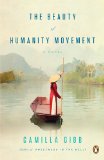Summary | Excerpt | Reading Guide | Reviews | Beyond the Book | Readalikes | Genres & Themes | Author Bio

A Novel
by Camilla Gibb
Hung's crime is the same every day, but sometimes the police are in more of a mood to arrest a man than fine him. "Where did you relieve yourself this morning?" an officer in such a mood had asked him a few months ago.
Hung had shaken his head. The question made no sense. "Where did you pee, old man?" The officer raised his voice, threatening to arrest Hung for resisting a police officer if he didn't answer the question.
Hung reluctantly pointed toward a patch of grass and asked, "Has peeing now been declared a crime?"
No, but that very patch of grass, as he was no doubt well aware, was the consecrated site upon which the Ministry of Labor, Invalids and Social Affairs would soon be erecting a new monument to honor the revolution's martyrs and devotees. And so Hung was promptly arrested for insulting the Communist Party, which is to say, the only party there is.
Hung considered that night behind bars, lying on concrete and pissing into a communal bucket, mild punishment compared to the previous time he'd been charged with insulting the Party. Then, they had disciplined his mouth by punching out most of his front teeth with the butt of a rifle.
"Why this waste of money on statues?" he shouted after Bình had paid the bribe to release him from prison the second time. "Why yet another monument for the revolution? It's been fifty years of this. Oh, if they could read the insults in my mind..."
"They used to claim they could read minds," Bình said, and off they wandered, mumbling together like two old men despite the almost thirty years between them, two old men who had indeed once believed in the Party's telepathy.
Hung serves the last man among today's early shift of customers and looks over at Bình and Tu, the younger still making calculations in the air with his chopsticks, the elder concentrating on his bowl. He wonders whether it isn't time for Tu to marry. He hopes Tu's mother, Anh, is giving this matter some attention; if not, Tu may well be the last in this family line Hung will serve.
The comforting clatter of metal spoons against porcelain is suddenly interrupted by a booming voice that floods the bloodless kidney, bouncing from side to side. Noodles slap against chins and silence falls. "What the hell are you all doing here?" a man yells, stepping down in heavy work boots. "I've got a project to supervise. I'll have you all arrested if you don't pack up and leave immediately!" He smacks a crowbar repeatedly against his thick-skinned palm.
Bình rises to his feet and all eyes turn toward him. "Sir, you have to smell this," he says, nodding at the bowl in his hands.
Hung feels a hot rush of pride fill his cheeks. Bình really is a son to him, if not by blood, then certainly through his devotion. What is blood without relationship, without life shared, in any case? Hung has come to believe it is little more than something red.
A hush vibrates around the pool as the foreman steps toward Bình and demands to know their business. This is private property; what are they all doing squatting here like it's mealtime on some communal farm?
"This is Hanoi's greatest secret," Bình says, his eyes lowered in deference. "Seriously. You have to know. It will change you."
Despite the threat of the rusty crowbar, despite his familiarity with the pain such an instrument can cause, Hung knows this is his moment. He shuffles forth across the concrete in his slippers. He holds his own bowl under the foreman's nose, steam rising to envelop them both. His customers inhale as if sharing one set of lungs. No one makes a sound as the foreman licks his lips and takes the chopsticks Hung offers. The foreman thrusts those chopsticks to the bottom of the bowl and lifts the noodles into the air, creating a wave that plunges the herbs to the bottom before they float back to the surface, infusing the noodles in the broth, just as every mother teaches her child.
Excerpted from The Beauty of Humanity Movement by Camilla Gibb. Copyright © 2011 by Camilla Gibb. Excerpted by permission of Penguin Press. All rights reserved. No part of this excerpt may be reproduced or reprinted without permission in writing from the publisher.
Don't join the book burners. Don't think you are going to conceal faults by concealing evidence that they ever ...
Click Here to find out who said this, as well as discovering other famous literary quotes!
Your guide toexceptional books
BookBrowse seeks out and recommends the best in contemporary fiction and nonfiction—books that not only engage and entertain but also deepen our understanding of ourselves and the world around us.